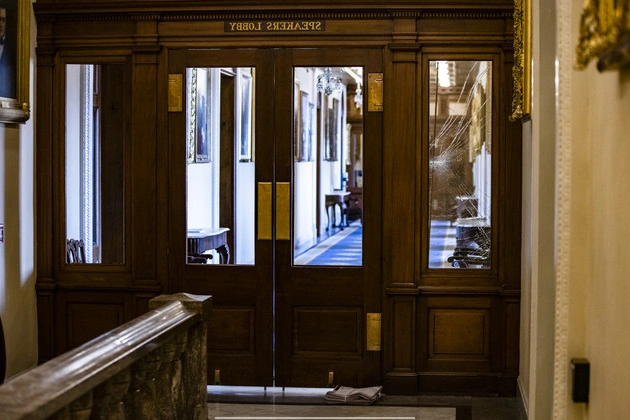
A federal judge has rejected the Justice Department’s effort to repay $63,000 to a member of the Jan. 6 mob who filmed the fatal shooting of rioter Ashli Babbitt and then sold the footage for profit.
Judge’s Ruling on Reclaiming Funds
John Sullivan, who was freed from a six-year jail sentence after President Donald Trump’s sweeping Day One pardons, had forfeited those profits to the federal government as a consequence of his criminal conviction. After Trump wiped out his case, Sullivan asked the court to permit him to reclaim the money he forked over. The Justice Department and then-interim U.S. Attorney Ed Martin sided with Sullivan.
But U.S. District Judge Royce Lamberth said Tuesday that a quick refund would be unconstitutional. Sullivan’s funds had been deposited in the U.S. Treasury, he noted, and under the Constitution’s “appropriations clause,” only Congress can authorize the disbursement of funds held by the Treasury.
Implications of the Ruling
It’s the latest wrinkle in efforts by Jan. 6 defendants to recoup the fines, penalties and restitution they paid as a consequence of their convictions. Several judges are still weighing requests by some Jan. 6 defendants to recoup funds they paid to help offset the $2.7 million in damage done to Capitol grounds. Lamberth’s ruling could have implications for those cases as well.
Lamberth has at times chafed at efforts by Trump and his allies to rewrite the history of the attack on the Capitol that threatened the transfer of power in 2021 and left more than 100 police officers injured. He used the opinion on Sullivan — a controversial figure even among Jan. 6 defendants for his unclear ideology — to raise anew the horrors of the attack, and Sullivan’s role in fomenting them.
The judge recalled Sullivan’s participation in the riot as “to put it gently, idiosyncratic,” noting that he appeared to have no love for Trump supporters but instead pursued a general urge to sow chaos.
“Mr. Sullivan callously used the riots as an opportunity for personal profit, manipulating other rioters for his own gain,” Lamberth wrote. “Mr. Sullivan cynically and falsely portrayed himself as a journalist not only to legitimize his cruel profiteering — at the expense of the police, his fellow rioters, and his country — but also in hopes of evading legal accountability for his actions.”
Prosecutors relied on Sullivan’s footage in hundreds of court cases featuring rioters who treaded the same path as Sullivan through the Capitol.











